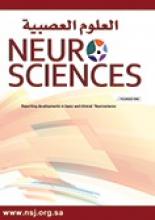11 June 2021 - Today, the Global Polio Eradication Initiative (GPEI) will launch the Polio Eradication Strategy 2022-2026: Delivering on a Promise at a virtual event, to overcome the remaining challenges to ending polio, including setbacks caused by COVID-19. While polio cases have fallen 99.9% since 1988, polio remains a Public Health Emergency of International Concern (PHEIC) and persistent barriers to reaching every child with polio vaccines and the pandemic have contributed to an increase in polio cases. Last year, 1226 cases of all forms of polio were recorded compared to 138 in 2018.
In 2020, the GPEI paused polio door-to-door campaigns for four months to protect communities from the spread of COVID-19 and contributed up to 30,000 programme staff and over $100 million in polio resources to support pandemic response in almost 50 countries.
Leaders from the two countries yet to interrupt wild polio transmission—Pakistan and Afghanistan—called for renewed global solidarity and the continued resources necessary to eradicate this vaccine-preventable disease. They committed to strengthening their partnership with GPEI to improve vaccination campaigns and engagement with communities at high risk of polio.
Dr Faisal Sultan, Special Assistant to the Prime Minister of Pakistan on Health, said, “We are already hard at work with our GPEI partners to address the final barriers to ending polio in Pakistan, particularly through strengthening vaccination campaigns and our engagement with high-risk communities. Eradication remains a top health priority and Pakistan is committed to fully implementing the new GPEI strategy. We look forward to working with international partners to achieve a polio-free world.”
The 2022-2026 Strategy underscores the urgency of getting eradication efforts back on track and offers a comprehensive set of actions that will position the GPEI to achieve a polio-free world. These actions, many of which are underway in 2021, include:
further integrating polio activities with essential health services—including routine immunization—and building closer partnerships with high-risk communities to co-design immunization events and better meet their health needs, particularly in Pakistan and Afghanistan;
applying a gender equality lens to the implementation of programme activities, recognizing the importance of female workers to build community trust and improve vaccine acceptance;
strengthening advocacy to urge greater accountability and ownership of the program at all levels, including enhanced performance measurement and engagement with new partners, such as the new Eastern Mediterranean Regional Subcommittee on Polio Eradication and Outbreaks; and, implementing innovative new tools, such as digital payments to frontline health workers, to further improve the impact and efficiency of polio campaigns.
“With this new Strategy, the GPEI has clearly outlined how to overcome the final barriers to securing a polio-free world and improve the health and wellbeing of communities for generations to come,” said Dr Tedros Adhanom Ghebreyesus, Director-General of the World Health Organization and member of the Polio Oversight Board. “But to succeed, we urgently need renewed political and financial commitments from governments and donors. Polio eradication is at a pivotal moment. It is important we capitalise on the momentum of the new Strategy and make history together by ending this disease.”
Dr Wahid Majrooh, Acting Minister of Public Health for Afghanistan, said, “Afghanistan is fully committed to implementing the new GPEI strategic plan and eradicating polio from its borders. Together we have come so far. Let us take this final step together and make the dream of a polio-free world a reality.”
In addition to eradicating wild polio, GPEI will strengthen efforts to stop outbreaks of circulating vaccine-derived poliovirus (cVDPV) that continue to spread in under-immunized communities across Africa and Asia. This includes deploying proven tactics used against wild polio, improving outbreak response and streamlining management through the launch of new global and regional rapid response teams and broadening the use of a promising new tool – novel oral polio vaccine type 2 (nOPV2) – to combat type 2 cVDPVs, the most prominent variant.
H.E. Félix Tshisekedi, President of the Democratic Republic of the Congo, said “As Chair of the African Union, I call on every government to increase their commitment to protecting the gains of our monumental efforts and finishing the job against polio in Africa. Only then, we will be able to say we delivered on our promise of a safer, healthier future for all our children.”
Select countries began using nOPV2 in March of this year after WHO issued an Emergency Use Listing recommendation for the vaccine last November. Clinical trials have shown that nOPV2 is safe and effective against type 2 polio, while having the potential to stop cVDPV2 outbreaks in a more sustainable way compared to the existing type 2 oral polio vaccine.
In addition to supporting the COVID-19 response, polio assets and infrastructure have historically helped tackle the emergence of health crises in several countries around the world, including the Ebola outbreak in Nigeria in 2014. Without the support needed for the new GPEI Strategy, there is a risk not only that polio could resurge, but also that countries will be more vulnerable to future health threats.
Available from: https://www.who.int/news/item/10-06-2021-countries-reaffirm-commitment-to-ending-polio-at-launch-of-new-eradication-strategy
- Received March 4, 2021.
- Accepted February 16, 2021.
- Copyright: © Neurosciences
Neurosciences is an Open Access journal and articles published are distributed under the terms of the Creative Commons Attribution-NonCommercial License (CC BY-NC). Readers may copy, distribute, and display the work for non-commercial purposes with the proper citation of the original work.






